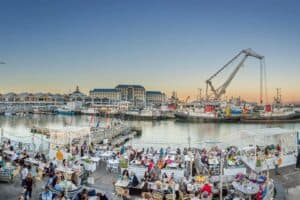The UK remained South Africa’s historical and strategic trade and investment partner and remained a key market for especially agriculture exports.
Government’s priority is to ensure certainty and continuity in the trade and investment relationship between the United Kingdom and South Africa following the UK’s exit (Brexit) from the European Union (EU), Trade and Industry Minister Rob Davies said on Friday.
The economic partnership agreement (EPA) provided a good basis to facilitate trade between South Africa and the UK going forward, he said at the British Chamber of Business dialogue on the UK-South Africa bilateral relationship post-Brexit in Sandton, Johannesburg.
“Our priority now is that we do not want any interruption in our trade relations with the UK. The UK government has given an indication that it will roll-over existing trade arrangements to provide continuity and predictability,” he said.
The EPA represented an improvement on the trade development co-operation agreement (TDCA) in a number of respects in that it harmonised the trading regime between the Southern African Customs Union (Sacu) and the EU and secured further market access in agriculture beyond the TDCA provisions. The Sacu was the world’s oldest customs union and predated the EU by 50 years.
“Under the EPA, we have secured an improved market access for wines and some fruit products, as well as negotiated new access for sugar and ethanol,” Davies said.
South Africa had also managed to gain recognition for some of its geographic indications, such as rooibos, honey bush, and Karoo lamb, under the EPA, as well as some wine names.
The UK remained South Africa’s historical and strategic trade and investment partner and remained a key market for especially agriculture exports, accounting for over 20 percent of South Africa’s exports of wine and 30 percent of exports globally.
The UK was also the biggest destination in the EU for South African investment, accounting for 30 percent of South African investments in Europe. Bilateral investment relations between the UK and South Africa were strong with a total of 323 foreign direct investment (FDI) projects from the UK to South Africa recorded between January 2003 and September 2016.
These projects represented a total capital investment of R63.5 billion, which was an average investment of R1.6 billion per project. According to FDI Intelligence, during the period a total of 4857 jobs were created, Davies said.
For more news your way, follow The Citizen on Facebook and Twitter.






